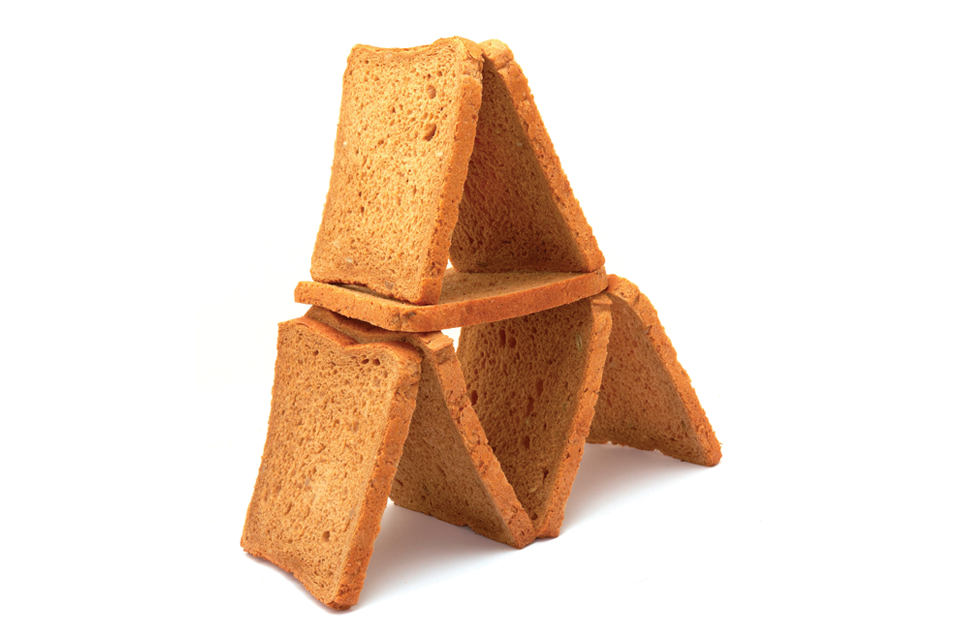House of Carbs

Bring up the topic of carbs around most fitness-minded folks and you’ll likely hear some reference to “good carbs”, “bad carbs”, “low-carb” and even “no carb” diets, and how they believe carbs play an important role in their fitness. You might hear some carb myths, and even carbohydrate dogmas, vilifying one of the macronutrients over the others. While it would be super convenient for us to find that one thing keeping us from our fitness goals, the truth is, there are always more factors at play.
Keep A Watchful Eye
Taking diabetes and other special metabolic conditions out of the equation, for most average folks looking to lose weight and improve their fitness, it’s not a bad idea to take a look at your carb consumption. Keeping all else the same, cutting back on certain carbs will allow you to create an energy (calorie) deficit without too much fuss. But you don’t need to cut out all carbs.
Don’t Make It Too Complex
Carbs are categorized as being either “complex” or “simple”, but it makes more sense to most of us to categorize them as “whole” or “refined.” The difference being that whole carbs are those have not been processed or altered from their natural composition (think: fruit, veggies, brown rice, tubers, whole grains, etc). These carbs are beneficial and healthful for most people regardless of their fitness, body composition, or performance goals. Refined carbs are those that have been processed to remove the natural fiber (such as, bread, white rice, fruit juice, white flour, high fructose corn syrup, and pasta). The key difference between whole versus refined carbs here is fiber. A good place to start for most folks looking to lose weight by cutting back on carbs is to eat more whole carbs, and fewer refined carbs.
Know When To Be Refined
It would be beneficial for most people to cut back on their consumption of refined carbs, or to use them strategically to positively impact athletic performance where you would want a storage of glycogen to fuel your muscles. For most of us just working out, we won’t need to worry too much about that. Whether you burn glycogen or fat during your workout, it doesn’t matter much from a fat loss standpoint. The key is to burn calories and to improve your energy deficit. So, no need to carb-load before your spin class.
If you have specific athletic performance goals, carbs (refined and whole) will play a more important role. Regarding athletic performance, your main energy source should come from glycogen from carbs. How much you need will vary. All people, athletes included, feel better physically at different carb levels.
Survive Or Thrive
Carbs are not essential, despite most of us not wanting to know what life would be like in their absence. When we don’t eat carbs, part of the brain can use ketones for energy made out of fats. Additionally, the body can produce the little glucose the brain needs to function via a process called gluconeogenesis. How much we need carbs to function at our best is relative, though. While it is possible to survive even on a zero-carb diet (the “keto diet” is low carb at under 50 grams of carbs a day), it is likely not the most sustainable choice for most people. Our ideal nutrition plan should help us thrive, not just survive. It should help us feel or perform as great as it helps us look. It is very important to note that what works for one person does not work for everyone, and what has worked at one point in your life may not always be your best protocol. The human body is constantly changing as we age, and so are our environmental stress factors, activity level, body composition, and metabolic health.
Balance It Out
Carbs are part of a balanced, healthy diet. Take a look at your current carb consumption and its proportion of your total calories, and your total calories altogether. It’s probably obvious where you may need to cut back. Most people eat an unbalanced proportion of carbs (lots of sugar, too) and fats to protein, coupled with an excess of calories in general. A quick way to cut back on carbs and calories is to focus on whole carbs versus refined carbs. Try to get your sugars from fruits and vegetables instead of foods with added sugars. These simple shifts can lead to big results without too much fuss.






